class LBFGS extends Optimizer with Logging
Class used to solve an optimization problem using Limited-memory BFGS. Reference: Wikipedia on Limited-memory BFGS
- Alphabetic
- By Inheritance
- LBFGS
- Logging
- Optimizer
- Serializable
- Serializable
- AnyRef
- Any
- Hide All
- Show All
- Public
- All
Instance Constructors
Value Members
-
final
def
!=(arg0: Any): Boolean
- Definition Classes
- AnyRef → Any
-
final
def
##(): Int
- Definition Classes
- AnyRef → Any
-
final
def
==(arg0: Any): Boolean
- Definition Classes
- AnyRef → Any
-
final
def
asInstanceOf[T0]: T0
- Definition Classes
- Any
-
def
clone(): AnyRef
- Attributes
- protected[lang]
- Definition Classes
- AnyRef
- Annotations
- @throws( ... ) @native()
-
final
def
eq(arg0: AnyRef): Boolean
- Definition Classes
- AnyRef
-
def
equals(arg0: Any): Boolean
- Definition Classes
- AnyRef → Any
-
def
finalize(): Unit
- Attributes
- protected[lang]
- Definition Classes
- AnyRef
- Annotations
- @throws( classOf[java.lang.Throwable] )
-
final
def
getClass(): Class[_]
- Definition Classes
- AnyRef → Any
- Annotations
- @native()
-
def
hashCode(): Int
- Definition Classes
- AnyRef → Any
- Annotations
- @native()
-
def
initializeLogIfNecessary(isInterpreter: Boolean, silent: Boolean): Boolean
- Attributes
- protected
- Definition Classes
- Logging
-
def
initializeLogIfNecessary(isInterpreter: Boolean): Unit
- Attributes
- protected
- Definition Classes
- Logging
-
final
def
isInstanceOf[T0]: Boolean
- Definition Classes
- Any
-
def
isTraceEnabled(): Boolean
- Attributes
- protected
- Definition Classes
- Logging
-
def
log: Logger
- Attributes
- protected
- Definition Classes
- Logging
-
def
logDebug(msg: ⇒ String, throwable: Throwable): Unit
- Attributes
- protected
- Definition Classes
- Logging
-
def
logDebug(msg: ⇒ String): Unit
- Attributes
- protected
- Definition Classes
- Logging
-
def
logError(msg: ⇒ String, throwable: Throwable): Unit
- Attributes
- protected
- Definition Classes
- Logging
-
def
logError(msg: ⇒ String): Unit
- Attributes
- protected
- Definition Classes
- Logging
-
def
logInfo(msg: ⇒ String, throwable: Throwable): Unit
- Attributes
- protected
- Definition Classes
- Logging
-
def
logInfo(msg: ⇒ String): Unit
- Attributes
- protected
- Definition Classes
- Logging
-
def
logName: String
- Attributes
- protected
- Definition Classes
- Logging
-
def
logTrace(msg: ⇒ String, throwable: Throwable): Unit
- Attributes
- protected
- Definition Classes
- Logging
-
def
logTrace(msg: ⇒ String): Unit
- Attributes
- protected
- Definition Classes
- Logging
-
def
logWarning(msg: ⇒ String, throwable: Throwable): Unit
- Attributes
- protected
- Definition Classes
- Logging
-
def
logWarning(msg: ⇒ String): Unit
- Attributes
- protected
- Definition Classes
- Logging
-
final
def
ne(arg0: AnyRef): Boolean
- Definition Classes
- AnyRef
-
final
def
notify(): Unit
- Definition Classes
- AnyRef
- Annotations
- @native()
-
final
def
notifyAll(): Unit
- Definition Classes
- AnyRef
- Annotations
- @native()
-
def
optimize(data: RDD[(Double, Vector)], initialWeights: Vector): Vector
Solve the provided convex optimization problem.
- def optimizeWithLossReturned(data: RDD[(Double, Vector)], initialWeights: Vector): (Vector, Array[Double])
-
def
setConvergenceTol(tolerance: Double): LBFGS.this.type
Set the convergence tolerance of iterations for L-BFGS.
Set the convergence tolerance of iterations for L-BFGS. Default 1E-6. Smaller value will lead to higher accuracy with the cost of more iterations. This value must be nonnegative. Lower convergence values are less tolerant and therefore generally cause more iterations to be run.
-
def
setGradient(gradient: Gradient): LBFGS.this.type
Set the gradient function (of the loss function of one single data example) to be used for L-BFGS.
-
def
setNumCorrections(corrections: Int): LBFGS.this.type
Set the number of corrections used in the LBFGS update.
Set the number of corrections used in the LBFGS update. Default 10. Values of numCorrections less than 3 are not recommended; large values of numCorrections will result in excessive computing time. numCorrections must be positive, and values from 4 to 9 are generally recommended.
-
def
setNumIterations(iters: Int): LBFGS.this.type
Set the maximal number of iterations for L-BFGS.
Set the maximal number of iterations for L-BFGS. Default 100.
-
def
setRegParam(regParam: Double): LBFGS.this.type
Set the regularization parameter.
Set the regularization parameter. Default 0.0.
-
def
setUpdater(updater: Updater): LBFGS.this.type
Set the updater function to actually perform a gradient step in a given direction.
Set the updater function to actually perform a gradient step in a given direction. The updater is responsible to perform the update from the regularization term as well, and therefore determines what kind or regularization is used, if any.
-
final
def
synchronized[T0](arg0: ⇒ T0): T0
- Definition Classes
- AnyRef
-
def
toString(): String
- Definition Classes
- AnyRef → Any
-
final
def
wait(): Unit
- Definition Classes
- AnyRef
- Annotations
- @throws( ... )
-
final
def
wait(arg0: Long, arg1: Int): Unit
- Definition Classes
- AnyRef
- Annotations
- @throws( ... )
-
final
def
wait(arg0: Long): Unit
- Definition Classes
- AnyRef
- Annotations
- @throws( ... ) @native()
 Databricks Scala Spark API
Databricks Scala Spark API